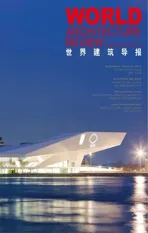Tea House in Hutong 胡同茶舍
——曲廊院
2017-11-03
Tea House in Hutong 胡同茶舍
——曲廊院
项目地址:北京市,东城区
项目类型:茶舍
设计内容:建筑+室内+景观
项目面积:约450平米
设计时间:2013.06—2014.03
施工时间:2014.03—2015.01
设计公司:建筑营设计工作室(ARCHSTUDIO)
设计团队:韩文强、丛晓、赵阳
摄影师:王宁
撰文:韩文强
Location: East District, Beijing, China
Project type: Tea House
Design content: Architecture + Interior + Landscape
Area: 450 sqm
Design time: 2013.06—2014.03
Construction time: 2014.03—2015.01
Design company: ARCHSTUDIO
Design Team: Han Wenqiang , Cong Xiao, Zhao Yang
Photographer: Wang Ning
Author: Han Wenqiang
项目背景
项目位于北京旧城胡同街区内,用地是一个占地面积约450平米的“L”型小院。院内包含5座旧房子和几处彩钢板的临建。院子原本是某企业会所,后因经营不善而荒废。在搁置了相当一段时间之后,小院现在即将被改造为茶舍,以供人饮茶阅读为主,也可以接待部分散客就餐。
设计理念
1.修复旧的。整理和分析现存旧建筑是设计的开始。北侧正房相对完整,从木结构和灰砖尺寸上判断,应该至少是清代遗存;东西厢房木结构已基本腐坏,用砖墙承重,应该是七八十年代后期改建的;南房木结构是老的,屋顶结构是用旧建筑拆下来的木头后期修缮的,墙面与瓦顶都由前任业主改造过。根据房屋的年代和使用价值,设计采取选择性的修复方式:北房以保持历史原貌为主,仅对破损严重的地方做局部修补,替换残缺的砖块;南方局部翻新,拆除外墙和屋顶装饰,恢复到民居的基本样式;东西厢房翻建,拆除后按照传统建造工艺恢复成木结构坡屋顶建筑;拆除所有临建房,还原院与房的肌理关系。
2.植入新的。旧有的建筑格局难以满足当代环境的舒适性要求,新的建筑必须能够完全封闭以抵御外部的寒冷。为此,我把建筑中的流线视觉化,转化为“廊”的形式,在旧有建筑的屋檐下加入一个扁平的“曲廊”将分散的建筑合为一体,创造新旧交替、
Project Background
Located in Beijing traditional Hutong district, the project’s structure space is an “L” shaped neighbourhood, 450 square metres large. Currently, the space has five old traditional houses and temporary corroded steel houses. The building, which originally hosted company business meetings before going dormant due to poor management will be transformed to a tea café. The tea café will be an ample place for people to read while enjoying their tea time. Additionally, the café will also serve individual dining guests.
Design Concept
1.Repair old. The project design begins by analyzing the old building's previous data. From the structure of the wood and the size of the grey bricks, we could tell that the relatively old north wing predates the Qing Dynasty. From the already decaying wood structure on the east and west houses,we deduce that the houses ought to be remodelled from the 70s and 80s. Additionally, judging by the wood structure on the building’s south side, you cannot deny the fact that it needs repair. The repair design shall be selective because it will have to factor in the building's age, fi nancial and historicalvalue. Repair in the room in the north wing shall be light, repairing only the parts with serious damage by replacing bricks. Repair in the north room shall be controlled to ensure it doesn't compromise the room's historical appearance. Repair in the south wing shall be aimed at giving the room a basic style through a partial renovation of the roof and wall. After the East and West wing have been demolished,they will be rebuilt into a wood structure with a pitched roof.
2.Implant new. The new environment demands comfort requirements that the previous architecture cannot sustain. For the building to be temperature resistant as required, it will have to be completely closed. Consequently, I have streamlined the visualized structure of the building, with a flat “curvy corridor” that creates a smooth transition from the past to the present. The gallery of the traditional
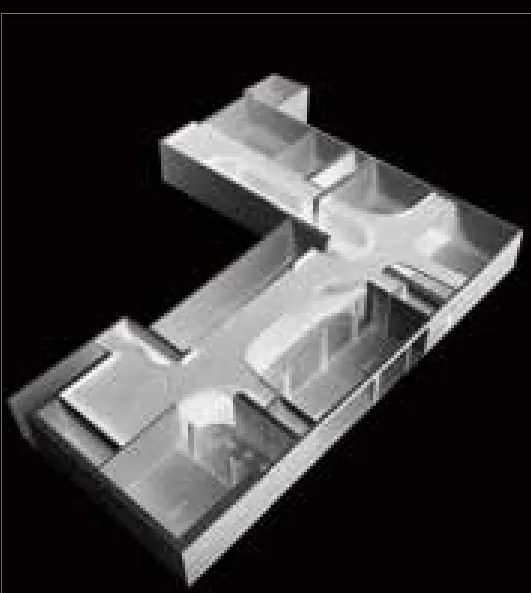

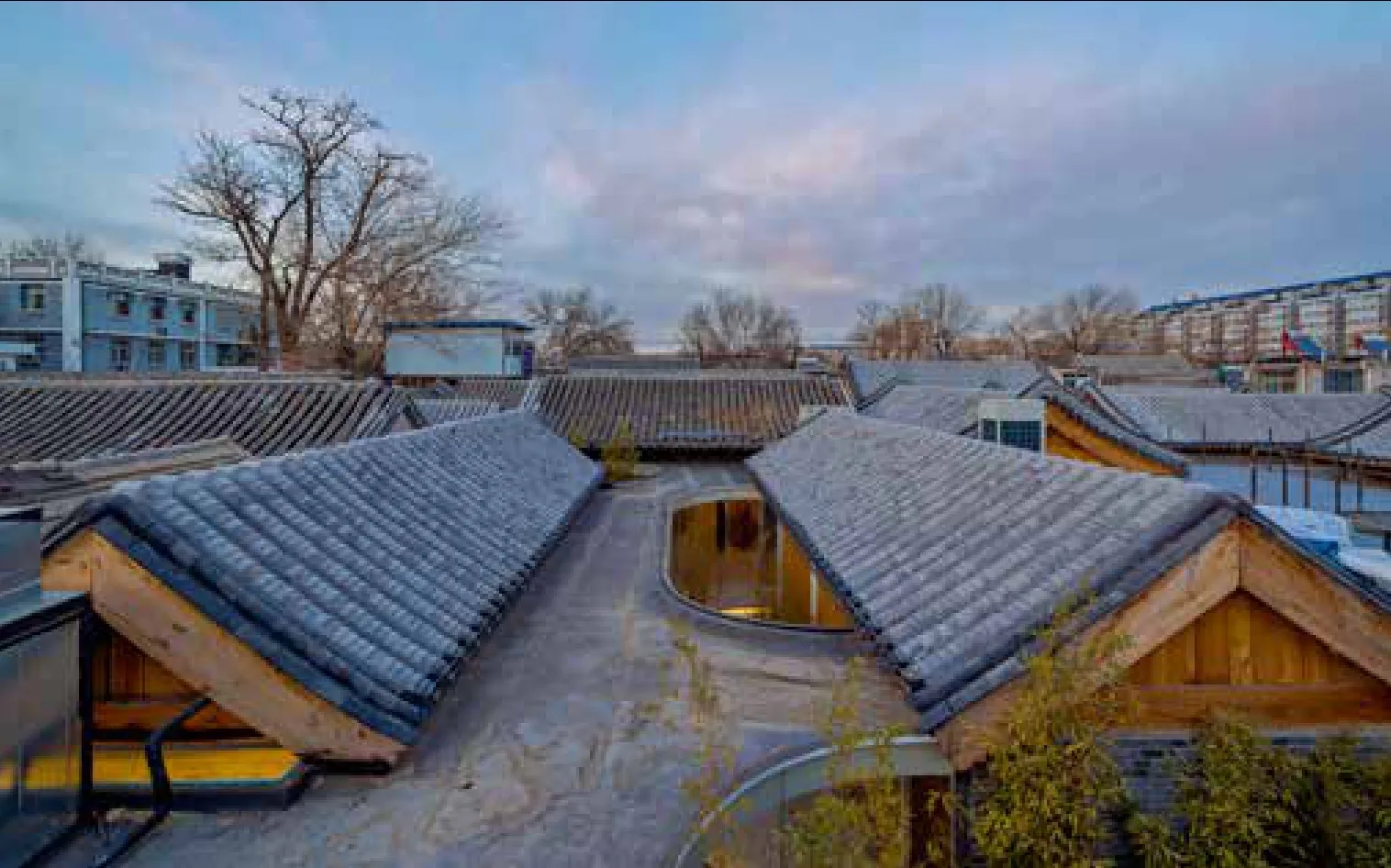

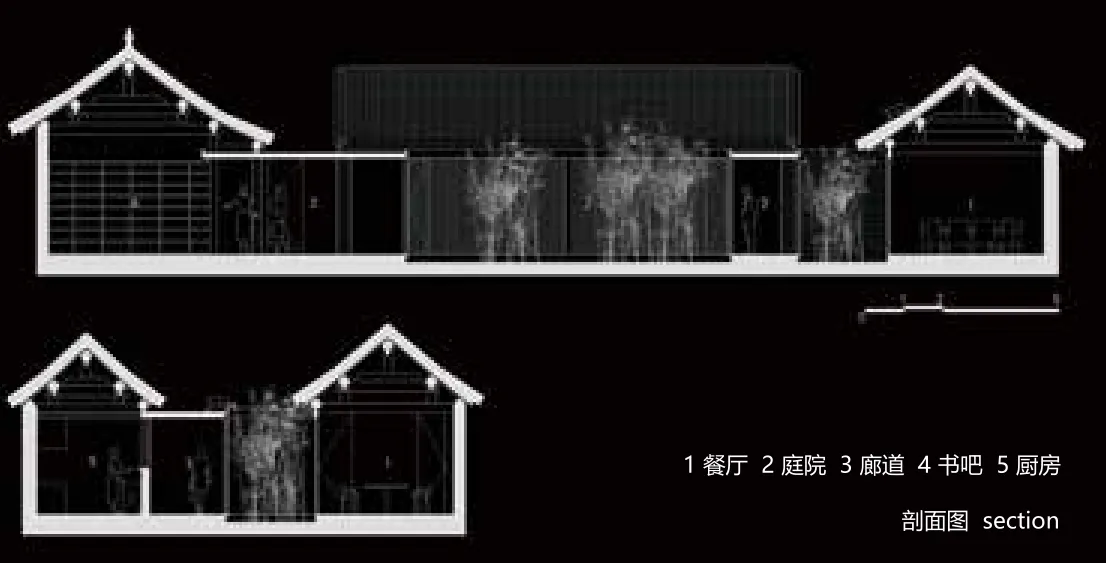
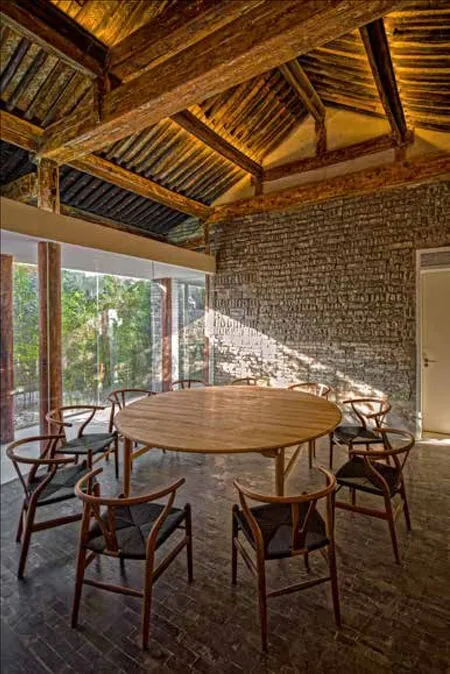

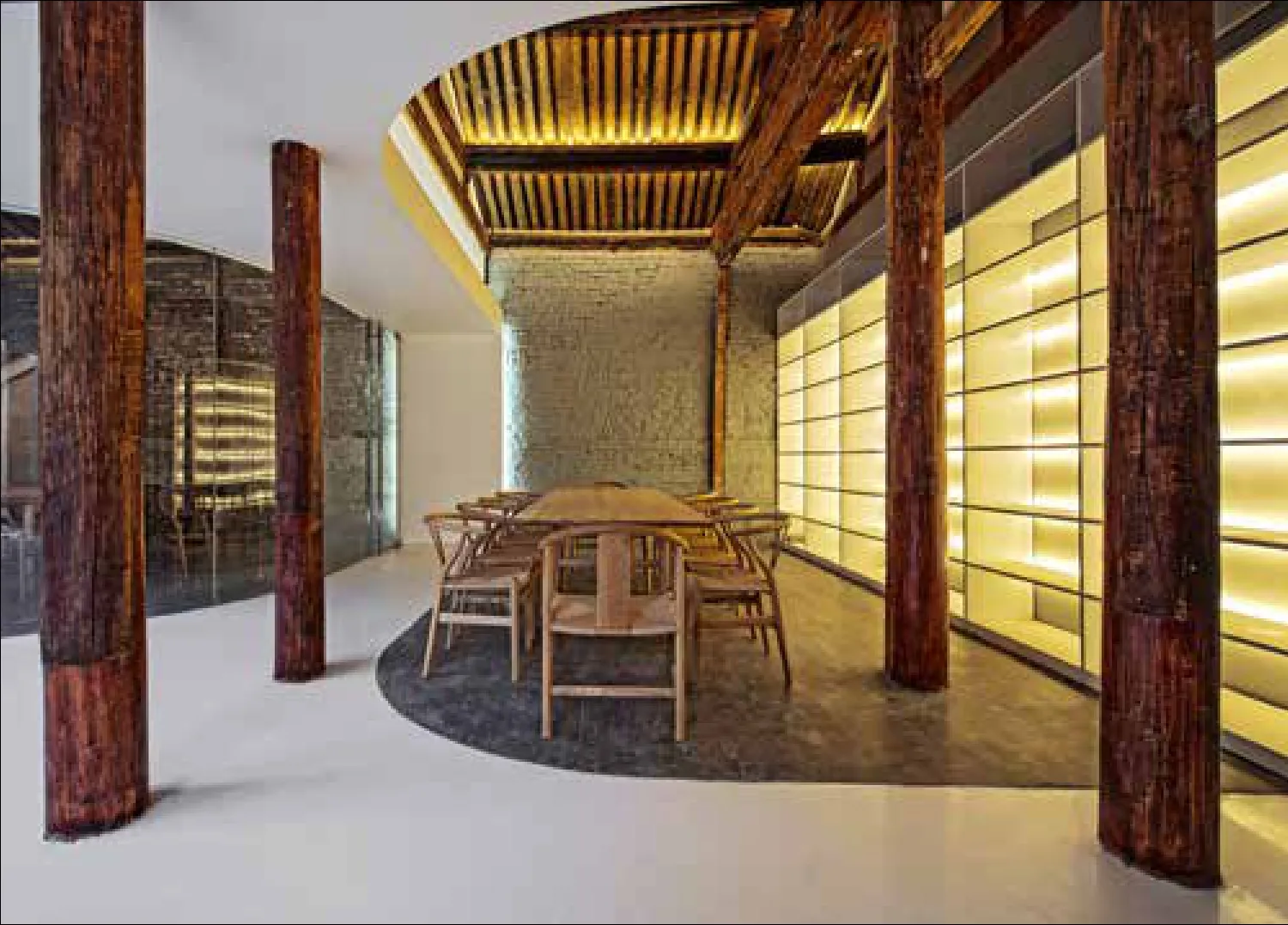
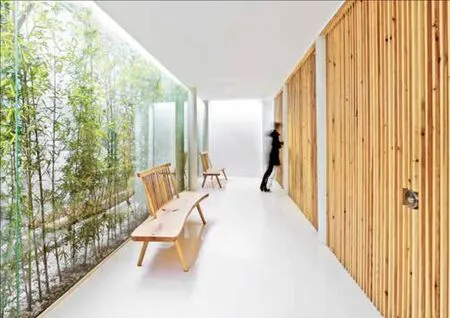
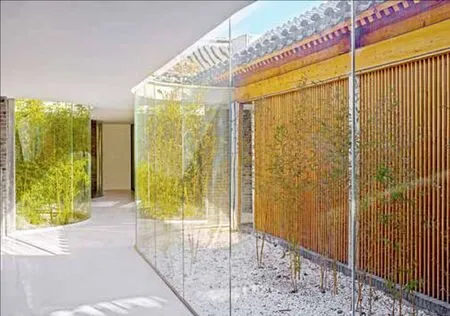
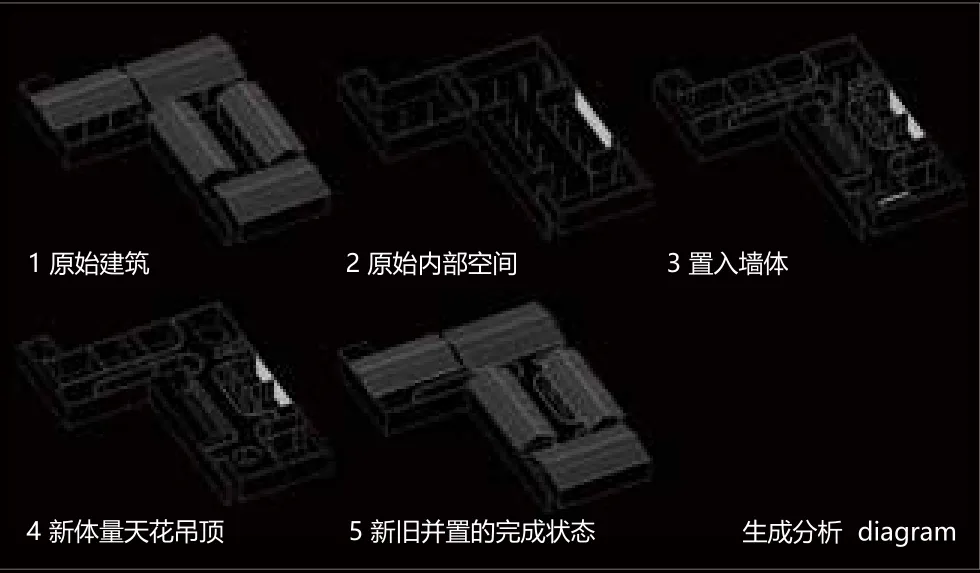
内外穿越的环境感受。在传统建筑中,廊是一种半内半外的空间形式,它的曲折多变、高低错落,大大增加了游园的乐趣。犹如树枝分岔的曲廊从室外伸展到旧建筑内部,模糊了院与房的边界,改变院子呆板狭窄的印象。轻盈、透明、纯白的廊空间与厚重、沧桑、灰暗的旧建筑形成气质上的反差,新的更新、老的更老,拉开时间上的层叠,新与旧相互产生对话。曲廊在原有院子中划分了三个错落的弧形小院,使每一个茶室有独立的室外景致,在公共和私密之间产生过渡。曲廊的玻璃幕墙好似一个悬浮地面之上的弧形屏幕,将竹林景观和旧建筑形式投射到茶室之中,新与旧的影像相互叠加。曲廊同时具有旧建筑的结构作用,廊的钢结构梁柱替换了局部旧建筑中腐朽的木材,使新与旧“长”在了一起。
项目意义
旧城既包含着丰富的历史记忆,又包含着复杂的现实生活。历史建筑只有在不断地被使用中才能保持活力,而使用方式又反过来又不断改变建筑。当代旧城民居改造需要在历史价值与使用价值之间保持适当的平衡,灵活处理两者之间的关系能够演化出丰富的现实环境。因此新生活和新业态恰好是一种催化剂,让改造梳理历史的层级,激发使用的乐趣。
architecture takes a half inside, half outside form, scattered high and low, significantly increasing the beauty of the garden. As depicted in the gallery, from the outside to the extension of the old building shall have a rigid, narrow impression. On the gallery,the white, transparent white space signifies ages of time. The vicissitudes of the life mix and the dark aged architectural pattern bring forth a temperament contrast between the modern and the past while creating a mutual dialogue between the past and future. I also discovered that divided like courtyards into three random arcs, the winding corridor of the original courtyard creates three tea houses with independent sceneries, forming a transition from public to private. The result of the controlled repair will be verandas' glass curtain; wall images and ground-curved screens suspended in the air; and a bamboo forest scenery. Additionally,the steel structure beam column that replaces the decayed wood in the old building brings forth an overlapping series of old and new images, making the new and old grow together.
Sig ni fi cance of the project
The old city is not only historically rich but also has a complex reality. While historical value only sustains the city's value by income through exploration, the unlimited usage of the facility transforms the city into an art pattern. The transformation leaves the residents of the old city with the responsibility of maintaining the balance between the historical and art values. The richness of the environments solemnly depends on how fl exible the residents are able to balance the two values. The new life and format can be seen as a catalyst to use history to enhance the usage of the facility.
